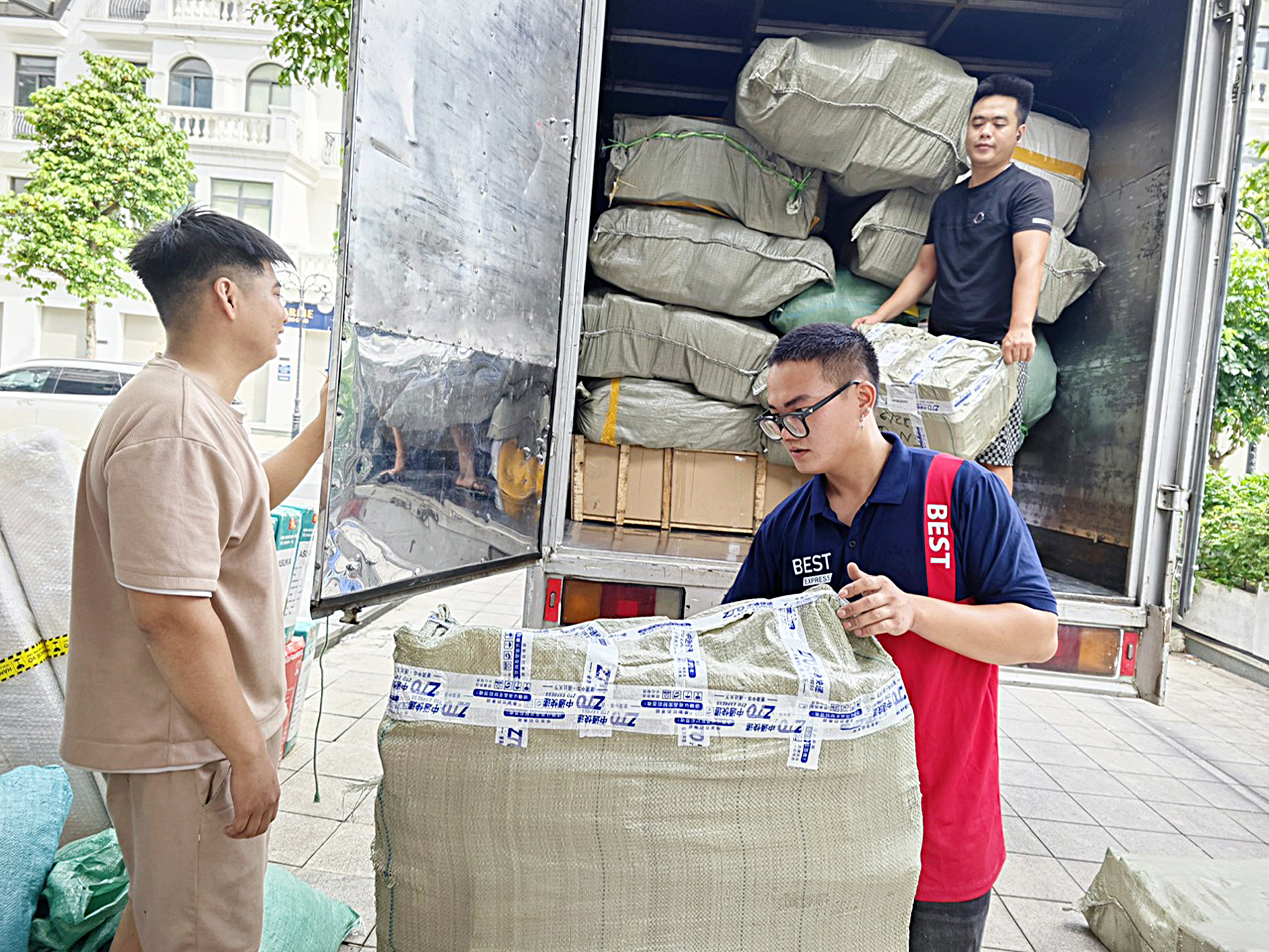
Goods ordered online by Vietnamese customers from Chinese e-commerce platforms are shipped to Vietnam. Photo: Bong Mai / Tuoi Tre
Vietnamese e-commerce is witnessing a seismic shift, with consumers increasingly turning to cross-border online shopping. According to Amazon Global Selling Vietnam, retail e-commerce sales are projected to skyrocket by an estimated 39% over the next few years, potentially exceeding VND8 trillion (about USD 310 million) by 2027. This burgeoning trend not only paves the way for local businesses to expand globally but also offers Vietnamese consumers unprecedented access to international products.
Take Thuy Anh, a 25-year-old from Ho Chi Minh City, who found herself entangled in the pitfalls of online shopping. After purchasing a counterfeit Jellycat plush toy from a dubious Facebook seller, she turned to the brand’s official website to buy a legitimate product. The experience taught her about the nuances of cross-border purchases, especially when it comes to verifying authenticity. Despite spending over VND2.2 million (USD 85), including shipping and taxes, her satisfaction stemmed from the confidence in receiving a genuine item, complete with the brand’s fabric pouch.
The direct shipping options offered by platforms like Taobao have spurred a wave of frequent online purchases among Vietnamese consumers. Huong Giang, residing in Ho Chi Minh City’s Binh Thanh District, illustrates this trend with her nearly daily shopping habits, where her cart brims with an eclectic mix of goods such as home appliances, apparel, and even instant noodles. A typical delivery timeline ranges from four to five days for orders from China to Hanoi, while deliveries to Ho Chi Minh City can take just over a week.
When it comes to U.S. purchases, Amazon reigns supreme among Vietnamese shoppers. Other popular American retailers, such as Sephora, Macy’s, BestBuy, and Walmart, have also captured the attention of Vietnamese consumers, offering everything from beauty products to electronics. The complexity of international shopping is alleviated by a plethora of support services like Fado, Thuong Do, and Pugo, which assist customers with placing and tracking their orders seamlessly.
Thu Huong, a Hanoi-based entrepreneur, has developed a reputation for reliability in international buying services. Through effective social media marketing, she advertises her services, ensuring that buyers can track their shipments with transparency. Her clientele often seeks out well-known brands, including Nike and Coach, alongside personal care items and niche products. Such services have even become valuable for those unfamiliar with navigating the sometimes murky waters of cross-border e-commerce.
Despite the increasing accessibility to global goods, challenges remain. Major international platforms frequently impose restrictions on shipping certain products to Vietnam, leading many logistics giants to step in. Viettel Post, part of the Viettel Group, now facilitates proxy shopping on prominent Chinese e-commerce sites like Taobao and 1688. Similarly, companies like EMS, DHL, FedEx, and others have expanded their offerings to include international shipping services, making the process more user-friendly.
Experts view these developments as a positive evolution of the Vietnamese market. Huynh Ho Dai Nghia, a public policy lecturer at the Ho Chi Minh City University of Economics and Finance, believes that the influx of global products will elevate consumer expectations and compel domestic companies to enhance their offerings. This sentiment is echoed in the recently published 2025 Vietnam E-Business Index Report, which notes a remarkable increase in the online retail market, reaching USD 32 billion in 2024, marking a 27% increase.
Furthermore, the Vietnam Digital Trade project reports that online import-export turnover amounted to USD 4.1 billion, with approximately USD 2.4 billion in imports. The e-commerce landscape is bustling, as evident from research conducted by Metric, which indicates that the five biggest platforms—Shopee, Lazada, TikTok Shop, Tiki, and Sendo—generated VND318.9 trillion (approximately USD 12.3 billion) in sales, reflecting a growth of over 37% in revenue. Shopee alone has seen impressive figures, importing over 324 million products and generating more than VND14.2 trillion (USD 550 million) in revenue, marking an astonishing 38% year-on-year increase.
The luxury market is also thriving, with Vietnamese consumers eager to acquire stylish items such as the Polène handbag, recently dubbed a must-have by Vogue for 2025. However, the high demand for such luxury goods has attracted unwanted attention from scammers. A Polène Cyme Mini bag, typically priced at USD 515 including shipping, can be found on the black market for VND 10-11 million (USD 388-425), often leading buyers into a web of deceit. Minh Trang, a Vietnamese living in France, cautions others, saying, “Even if you pay full price to a stranger, you can’t be sure it’s real. These vague offers are often scams.”
Though many purchases require advance payment, consumers appreciate the convenience, often referring to mismatched products as part of the learning curve. Huong Giang’s insightful perspective reflects this sentiment: “Some products are great, others are poorly made. If it turns out bad, I just consider it tuition fees.” As the online shopping landscape continues to evolve, Vietnamese consumers flaunting a keen eye for global brands stand at the forefront of a digital revolution.